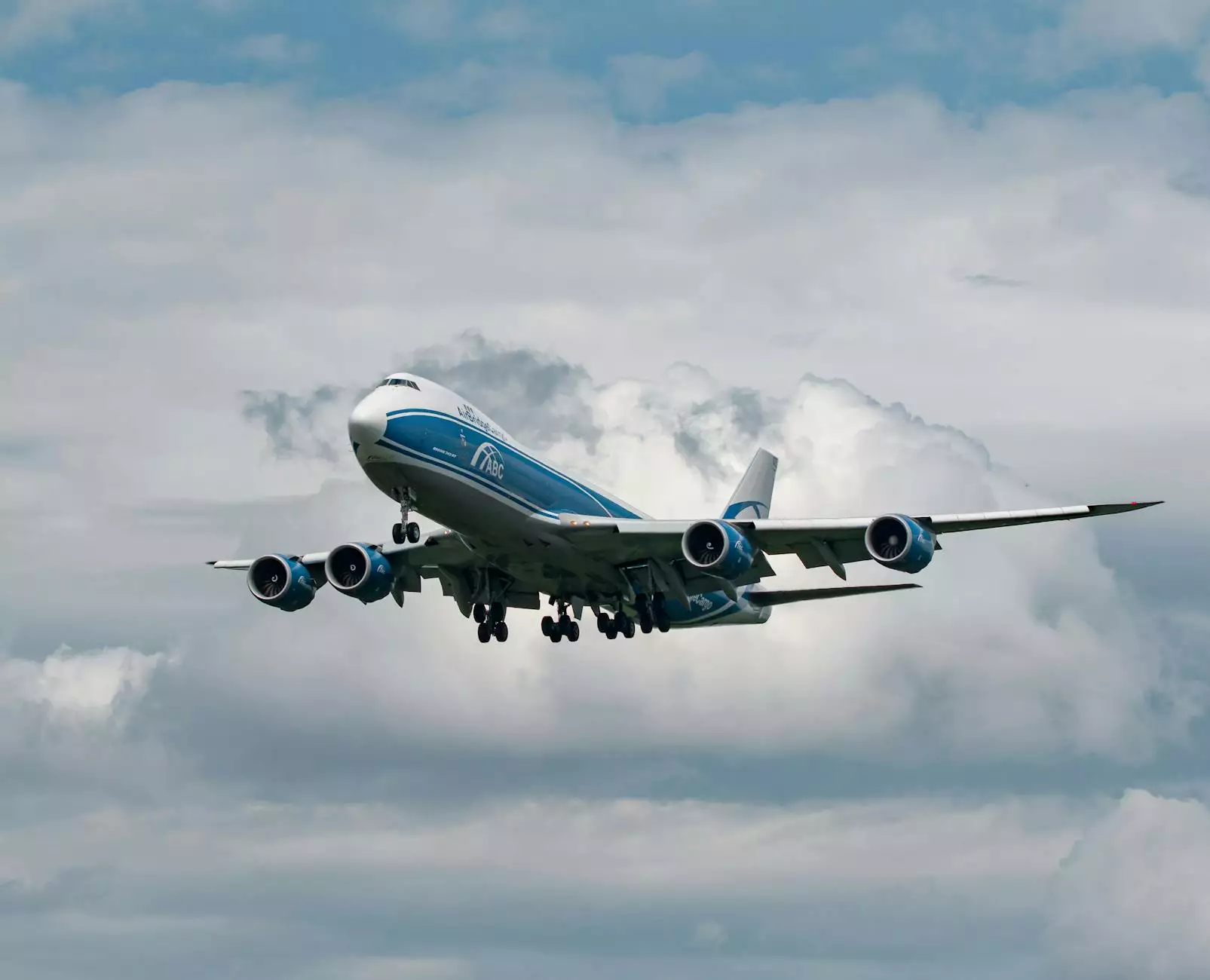Understanding Air Cargo Cost per KG: A Comprehensive Guide

The air cargo industry plays a significant role in the global economy by facilitating expeditious movement of goods across various geographical locations. Understanding the air cargo cost per kg can help businesses make informed decisions about their logistics strategies. This article delves into various facets of air cargo, including shipping centers, transportation methods, and the role of airports, along with detailed insights into pricing structures.
1. What is Air Cargo?
Air cargo refers to the transportation of goods via an air carrier. The cargo can be anything from perishable items, electronics, machinery parts, to large freight shipments. The air freight industry is characterized by its speed and efficiency, making it an ideal choice for businesses that require quick delivery times.
2. Why Choose Air Freight?
There are various reasons why businesses opt for air freight over other transportation modes:
- Speed: Air freight is the fastest method for shipping goods over long distances.
- Reliability: Airlines have strict schedules, which often ensure timely delivery.
- Global Reach: Air cargo connects remote regions to global markets.
- Security: Goods transported via air tend to be better monitored and secured.
3. The Air Cargo Cost per KG
The air cargo cost per kg is influenced by a myriad of factors. Understanding these factors not only helps businesses budget for their air freight costs but also enables them to negotiate better terms with shipping companies.
3.1 Factors Affecting Air Cargo Costs
Several key factors determine the air cargo cost per kilogram, including:
- Weight and Volume: The most significant factor is the weight of the shipment. Air freight costs are generally calculated based on the greater of the actual weight or the dimensional weight (volume). For example, if you have a package that is light but large, you might pay based on its size rather than actual weight.
- Distance: Shipping goods over longer distances can increase costs considerably due to fuel expenses and logistics.
- Type of Cargo: Perishable goods, hazardous materials, or high-value items often incur higher transport costs due to special handling or regulatory requirements.
- Origin and Destination: Shipping to certain airports may incur additional surcharges based on their geographic location and operational costs.
- Fuel Prices: Fluctuating fuel costs directly affect air cargo rates and, consequently, the air cargo cost per kg.
- Market Demand: High demand periods, such as holidays or special events, may increase pricing due to limited capacity.
4. Breakdown of Air Cargo Pricing
The air cargo cost per kg entails several components, each contributing to the final price that businesses will pay. It’s essential to understand these components for accurate budgeting:
- Base Rate: This is the starting price set by the airline based on the weight and distance of the transport.
- Fuel Surcharge: Given the volatility of fuel prices, a fuel surcharge is usually applied to the base rate.
- Security Fees: Air cargo security regulations require specific protocols, which may involve extra fees.
- Airport Handling Fees: These are charged for loading and unloading cargo, which varies by airport.
- Insurance Costs: Although optional, insuring shipments can be a crucial cost factor, especially for high-value goods.
- Customs and Taxes: Depending on the origin and destination, there may be customs duties or taxes that need to be considered.
5. Air Cargo Transportation Modes
5.1 Full-Load and Part-Load Services
When it comes to air cargo, you can choose between full-load and part-load services:
- Full-Load Air Freight: Suitable for larger shipments where an entire aircraft is booked. This option can often lead to cost savings for high-volume shipments.
- Part-Load Air Freight: Ideal for smaller shipments, part-load services allow businesses to pay for the cargo space they use, sharing the aircraft with other shipments.
5.2 Scheduled vs. Charter Flights
Customers can also opt between scheduled services and charter flights:
- Scheduled Flights: These are regular flights with predetermined routes, providing reliable shipping options.
- Charter Flights: These are tailored flights arranged specifically for urgent or oversized shipments, often at a higher cost but offering flexibility.
6. The Role of Airports in Air Cargo
The significance of airports in the air cargo ecosystem cannot be underestimated. They serve as vital hubs for facilitating the movement of goods. Key aspects include:
- Infrastructure: Airports need extensive infrastructure to handle cargo, including specialized warehouses for storage and handling.
- Customs Clearance: Airports equipped with customs facilities allow for efficient clearance, reducing delays on shipments.
- Connectivity: Major international airports provide links to global shipping routes, enabling efficient trade.
- Technology Integration: Modern airports use digital tracking and automated systems to streamline cargo handling.
7. Selecting the Right Air Cargo Service Provider
Choosing a suitable air cargo service provider is crucial for ensuring your shipment arrives safely and on time. Consider the following tips:
- Reliability: Research providers with a strong reputation for timely deliveries.
- Customer Service: Choose companies that offer excellent customer support to address any issues promptly.
- Cost Transparency: Ensure the provider is upfront about all costs involved, including hidden fees that could affect the air cargo cost per kg.
- Experience: A provider with experience in your specific industry may have the necessary expertise to handle your cargo effectively.
- Technology Use: Look for providers using advanced technology for tracking and managing your cargo.
8. Future Trends in Air Cargo
The air cargo industry is always evolving. Here are some notable trends that are shaping the future:
- Increased Demand for E-commerce: The rise of online shopping has led to a surge in air cargo demand for rapid delivery services.
- Sustainability Initiatives: Companies are actively seeking eco-friendly practices, including more fuel-efficient aircraft and sustainable logistics.
- Digitalization and Automation: Advances in technology are streamlining operations, from booking to tracking shipments, enhancing efficiency and reducing costs.
- Health and Safety Protocols: Following the global pandemic, enhanced safety protocols have become crucial in maintaining the integrity of shipments.
9. Conclusion
Understanding the air cargo cost per kg is vital for businesses looking to leverage air freight as a logistics solution. The dynamics of air cargo pricing can be complex, influenced by multiple factors ranging from weight and distance to fuel costs and market demand. By discerning these nuances, companies can better navigate their shipping strategies, ensure cost-effectiveness, and maintain competitive advantage in their respective markets.
For companies that wish to optimize their logistics processes and ensure timely, efficient transport of goods, partnering with the right air cargo service provider is essential. Whether you're shipping perishable goods, machinery, or any other type of cargo, understanding the ins and outs of air freight will empower you to make strategic decisions that enhance your business operations.
To explore more about air cargo services, detailed guides, and shipping options tailored for your business, visit cargobooking.aero.



